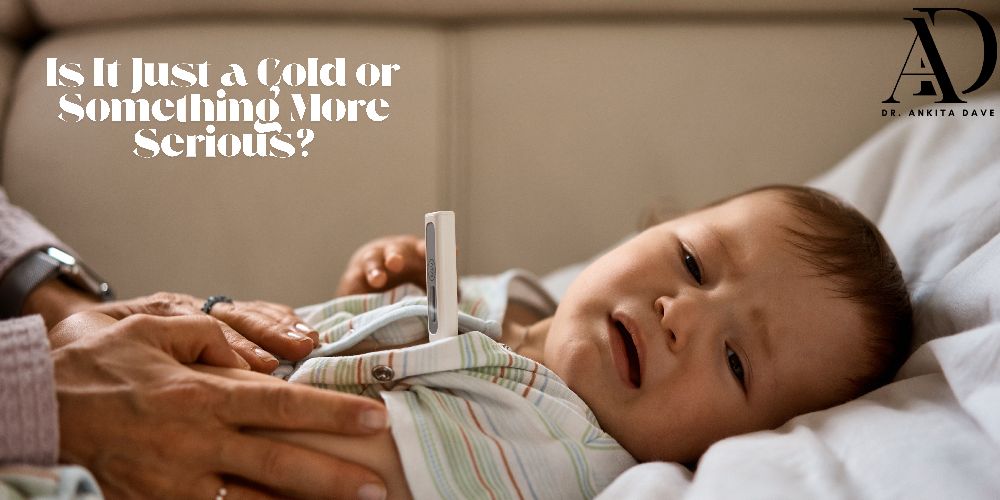
Runny noses, sneezing, and coughs are part of growing up—but how can you tell when a child’s cold is just a harmless virus or the start of something more serious? Parents often find themselves wondering whether to wait it out or make an urgent trip to the doctor. Knowing what signs to look for can give you peace of mind and help ensure your child gets the care they need.
🤧 Understanding the Common Cold in Kids
The common cold is caused by a virus—most often rhinovirus—and is extremely common in children, especially in the early years when their immune systems are still developing. Symptoms typically include:
Runny or stuffy nose
Sneezing
Mild cough
Low-grade fever
Sore throat
Fatigue
Colds usually improve on their own within 7 to 10 days. But when symptoms linger or worsen, it might signal a more serious illness.
⚠️ Signs It Could Be Something More Serious
Here are some red flags that might mean your child is dealing with more than just a simple cold:
1. High or Persistent Fever
A fever over 102°F (38.9°C) lasting more than a couple of days could point to a bacterial infection like strep throat, ear infection, or even pneumonia.
2. Breathing Trouble
Wheezing, fast breathing, or struggling to catch their breath may suggest bronchiolitis, asthma, or pneumonia. These symptoms require medical attention.
3. Ear Pain or Drainage
A cold that leads to ear pain or fluid coming from the ear may indicate an ear infection—common in toddlers and young children.
4. Severe Cough or Barking Sound
A deep, barking cough could be a sign of croup, while a wet, persistent cough might signal bronchitis or whooping cough.
5. Dehydration
Look for signs like dry mouth, no tears when crying, sunken eyes, or fewer wet diapers. Illness-related dehydration can be serious in infants and young kids.
6. Rash or Unusual Skin Color
A rash with fever, pale or bluish skin, or unusual spots could be signs of more serious infections and warrant immediate evaluation.
7. Symptoms Lasting More Than 10 Days
If cold symptoms don't improve after 10 days—or worsen—it's best to check in with your pediatrician to rule out sinus infections or secondary illnesses.
🏥 When to Call the Doctor
You should contact your child’s healthcare provider if:
Your child is under 3 months and has any fever
A fever lasts more than 72 hours
Breathing becomes labored or noisy
There is ear pain, chest pain, or persistent vomiting
They seem unusually drowsy or irritable
Symptoms suddenly get worse after initially improving
💡 How to Help Your Child at Home
For mild cold symptoms:
Use a humidifier or steam to ease congestion
Offer plenty of fluids
Use saline nasal drops and suction for infants
Let them rest as much as needed
Use acetaminophen or ibuprofen (age-appropriate) for fever or discomfort
Avoid giving over-the-counter cold meds to young children unless advised by your doctor.
🧸 Final Thoughts
Most colds are nothing to worry about—but trust your instincts. You know your child best. If their symptoms seem unusual or severe, don’t hesitate to reach out to a healthcare provider. It’s always better to be safe and get reassurance or early treatment if needed.
 (5).png)
 (7).png)
